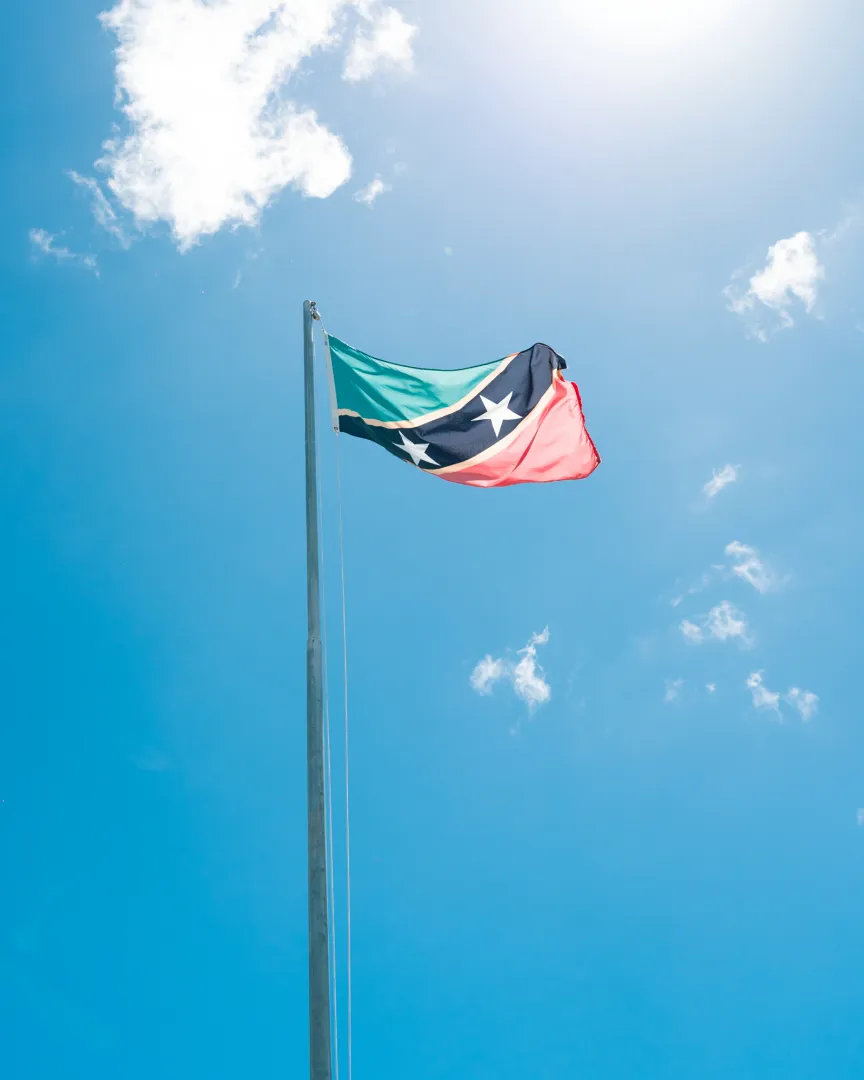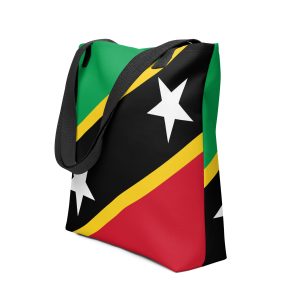The Evolution of the St. Kitts and Nevis Flag
From Colonialism to Independence
Colonial Era (Pre-1983): Before gaining independence, St. Kitts and Nevis used a series of colonial flags, which typically featured the Union Jack to symbolize British rule. These flags represented the islands as part of various colonial entities, including the British Leeward Islands and the West Indies Federation.
Designing the National Flag (1983): In the lead-up to independence, a nationwide competition was held in 1983 to design a flag that would encapsulate the spirit of a newly independent nation. Edris Lewis’s design was chosen for its bold colors and meaningful symbolism. This flag was officially adopted on September 19, 1983, the day St. Kitts and Nevis declared independence from the United Kingdom.
Post-Independence Usage: Since its adoption, the flag of St. Kitts and Nevis has remained unchanged, serving as a constant reminder of the nation’s hard-won independence and the unity of its people. The flag has become an integral part of national celebrations, such as Independence Day and Emancipation Day, symbolizing national pride and resilience.





